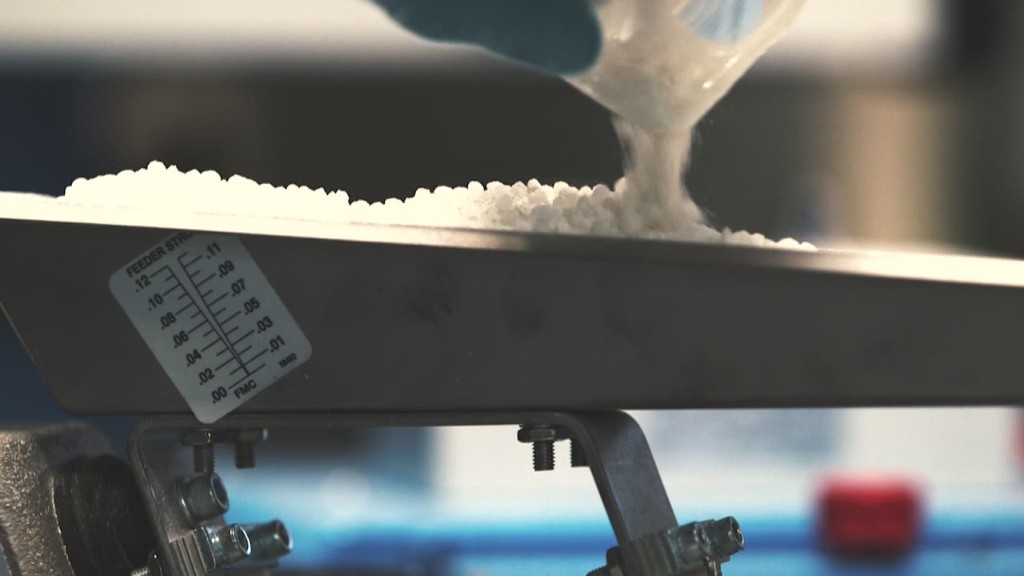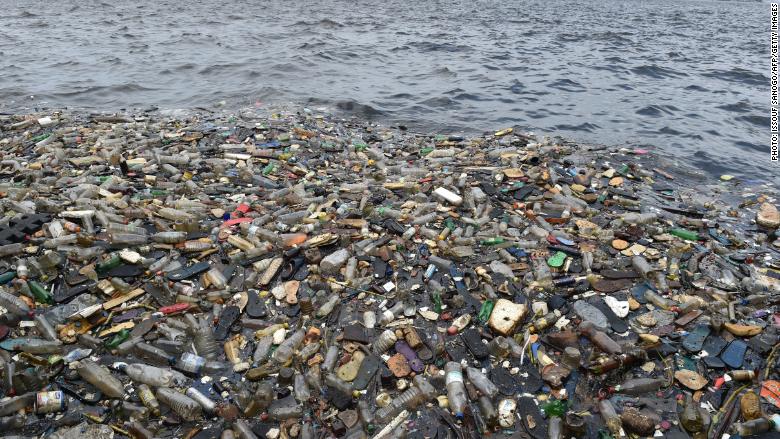
Is this the beginning of the end for plastic?
Iceland, a major British supermarket chain, has pledged to stop packaging its own products in plastic within five years.
The company, which has 900 stores and specializes in frozen foods, will replace plastic packaging with materials such as paper, cellulose, glass and metal.
The substitutes, which include existing recyclable and biodegradable materials, will be used in roughly 1,400 of the chain's own product lines.
Biodegradable alternatives made from thin layers of cellulose or plant-based starches have been around for decades, but are expensive.
"The technologies and practicalities to create less environmentally harmful alternatives exist, and so Iceland is putting a stake in the ground," said Iceland Managing Director Richard Walker.

The supermarket said that the shift to new packaging will not result in higher prices.
"Iceland will be making a substantial investment to deliver alternatives to plastic, but this will be phased in over five years," said Keith Hann, the firm's director of corporate affairs.
Related: Would you pay a tax on coffee cups?
The company said it has the backing of its customers. It cited a survey by OnePoll that showed 80% of consumers would endorse a supermarket's move to eliminate plastic, while 91% said they would be more likely to recommend the store to friends.
The British branch of Greenpeace said they were "very impressed" with Iceland's plan.
"Other U.K. supermarkets have made positive noises and have policies to reduce packaging and phase out a few plastic products, but Iceland's plan covers all of their own brand products and is attempting a total phase out of plastic packaging," said Graham Thompson, a spokesman for Greenpeace.
Thompson said that Iceland is the first major retailer to take such a step.
Related: More plastic than fish in oceans by 2050
The move comes amid public debate in Britain over the environmental harm caused by plastic waste. An estimated 12.7 million tonnes of plastic end up in oceans each year, according to Greenpeace.
The U.K. government said last week it wanted to eliminate "avoidable" plastic waste within 25 years. Critics say the announcement lacked specific proposals.
A group of British lawmakers have also called for a £0.25 ($0.34) tax on disposable coffee cups. They argue that a "latte levy" would force consumers to use recyclable cups and reduce waste. Free, single use plastic bags have been banned at U.K. supermarkets.
